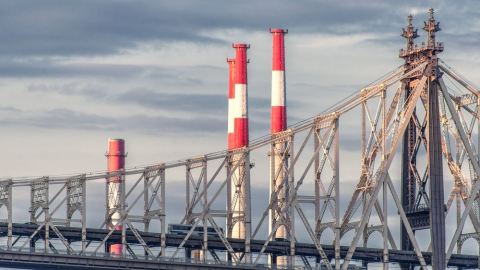Boston Leaking 3 Times More Methane Than Expected

Boston’s aging infrastructure is leaking methane gas into the atmosphere at levels much higher than originally suspected, hurting the environment and the regional economy.
In a study conducted by Harvard University, researchers set up natural gas detectors in downtown Boston, on the Atlantic coast, and in a forest outside the city. During a one-year period beginning in 2012, “roughly 3% of the gas delivered to the greater Boston area was released into the air, the report says, three times more than previous annual estimates.”
“The main finding: Between 2.1% and 3.3% of the methane in Boston’s air comes from local leaks—three times more than researchers had estimated from an inventory of known methane sources in the study area.”
Methane is the main chemical component in natural gas and it’s relationship to the environment is two-sided. When natural gas is burned, the resulting carbon dioxide emissions measure half the quantity as CO2 created by burning coal.
But if methane leaks into the atmosphere before it is burned, it is estimated to be thirty four to eight six percent more potent a greenhouse gas than CO2.
“According to the new study, to be published tomorrow in the Proceedings of the National Academy of Sciences, the squandered gas has a value of $90 million—a financial loss for gas distributors and consumers alike.”
Paleontologist Peter Ward explains that, beyond economic losses, the environmental stakes are terribly high. Ward measures what is called “deep time”, or ancient temperature records, by examining carbon dioxide levels in the Antarctic ice that have collected over the last five million years.
Read more at Science
Photo credit: Shutterstock





